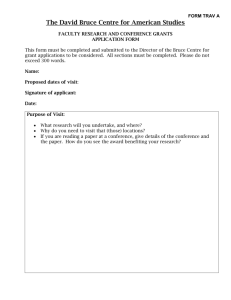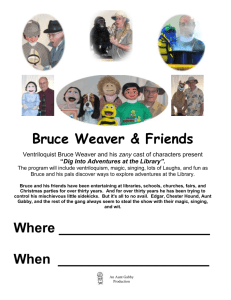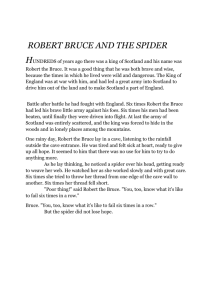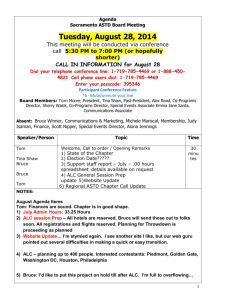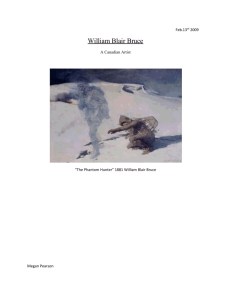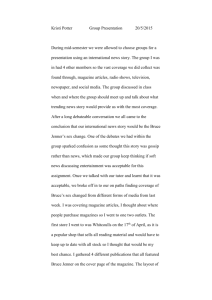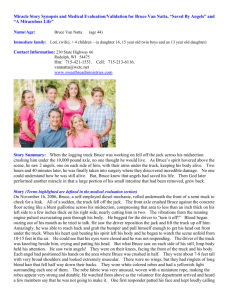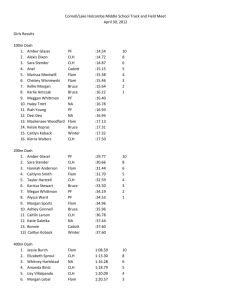File
advertisement
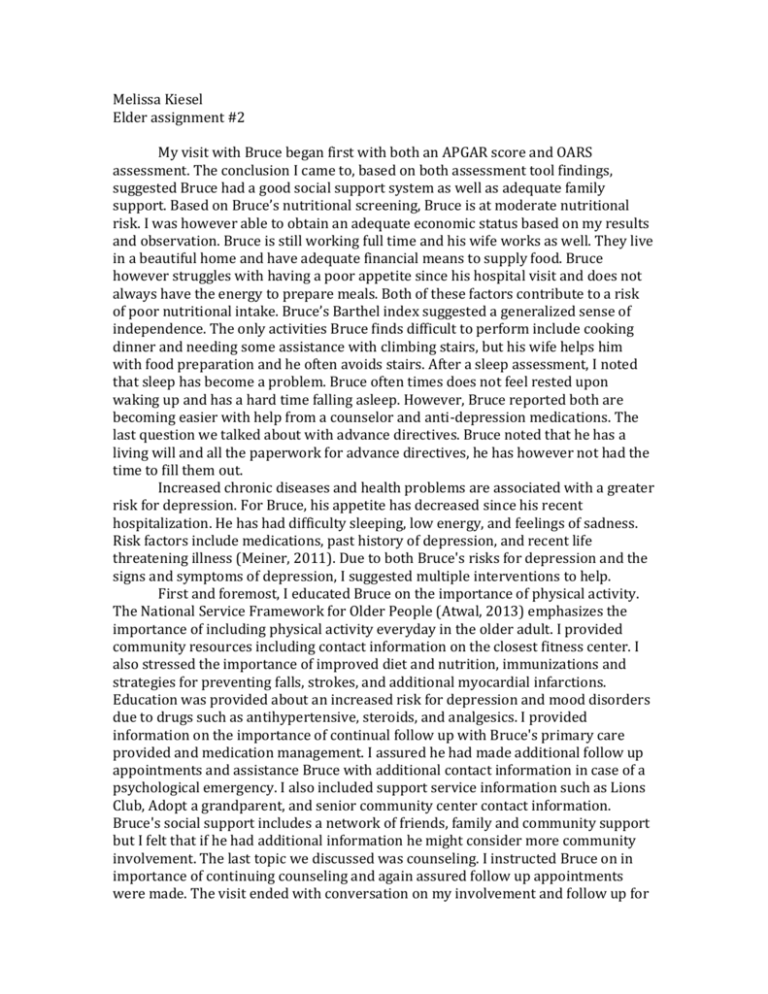
Melissa Kiesel Elder assignment #2 My visit with Bruce began first with both an APGAR score and OARS assessment. The conclusion I came to, based on both assessment tool findings, suggested Bruce had a good social support system as well as adequate family support. Based on Bruce’s nutritional screening, Bruce is at moderate nutritional risk. I was however able to obtain an adequate economic status based on my results and observation. Bruce is still working full time and his wife works as well. They live in a beautiful home and have adequate financial means to supply food. Bruce however struggles with having a poor appetite since his hospital visit and does not always have the energy to prepare meals. Both of these factors contribute to a risk of poor nutritional intake. Bruce’s Barthel index suggested a generalized sense of independence. The only activities Bruce finds difficult to perform include cooking dinner and needing some assistance with climbing stairs, but his wife helps him with food preparation and he often avoids stairs. After a sleep assessment, I noted that sleep has become a problem. Bruce often times does not feel rested upon waking up and has a hard time falling asleep. However, Bruce reported both are becoming easier with help from a counselor and anti-depression medications. The last question we talked about with advance directives. Bruce noted that he has a living will and all the paperwork for advance directives, he has however not had the time to fill them out. Increased chronic diseases and health problems are associated with a greater risk for depression. For Bruce, his appetite has decreased since his recent hospitalization. He has had difficulty sleeping, low energy, and feelings of sadness. Risk factors include medications, past history of depression, and recent life threatening illness (Meiner, 2011). Due to both Bruce's risks for depression and the signs and symptoms of depression, I suggested multiple interventions to help. First and foremost, I educated Bruce on the importance of physical activity. The National Service Framework for Older People (Atwal, 2013) emphasizes the importance of including physical activity everyday in the older adult. I provided community resources including contact information on the closest fitness center. I also stressed the importance of improved diet and nutrition, immunizations and strategies for preventing falls, strokes, and additional myocardial infarctions. Education was provided about an increased risk for depression and mood disorders due to drugs such as antihypertensive, steroids, and analgesics. I provided information on the importance of continual follow up with Bruce's primary care provided and medication management. I assured he had made additional follow up appointments and assistance Bruce with additional contact information in case of a psychological emergency. I also included support service information such as Lions Club, Adopt a grandparent, and senior community center contact information. Bruce's social support includes a network of friends, family and community support but I felt that if he had additional information he might consider more community involvement. The last topic we discussed was counseling. I instructed Bruce on in importance of continuing counseling and again assured follow up appointments were made. The visit ended with conversation on my involvement and follow up for our next visit. Atwal, A. (2013). Occupational therapy and older people (2nd ed.). Chichester, West Sussex: Wiley-Blackwell. Meiner, S. (2011). Gerontologic nursing (4th ed.). St. Louis, Mo.: Mosby Elsevier.
